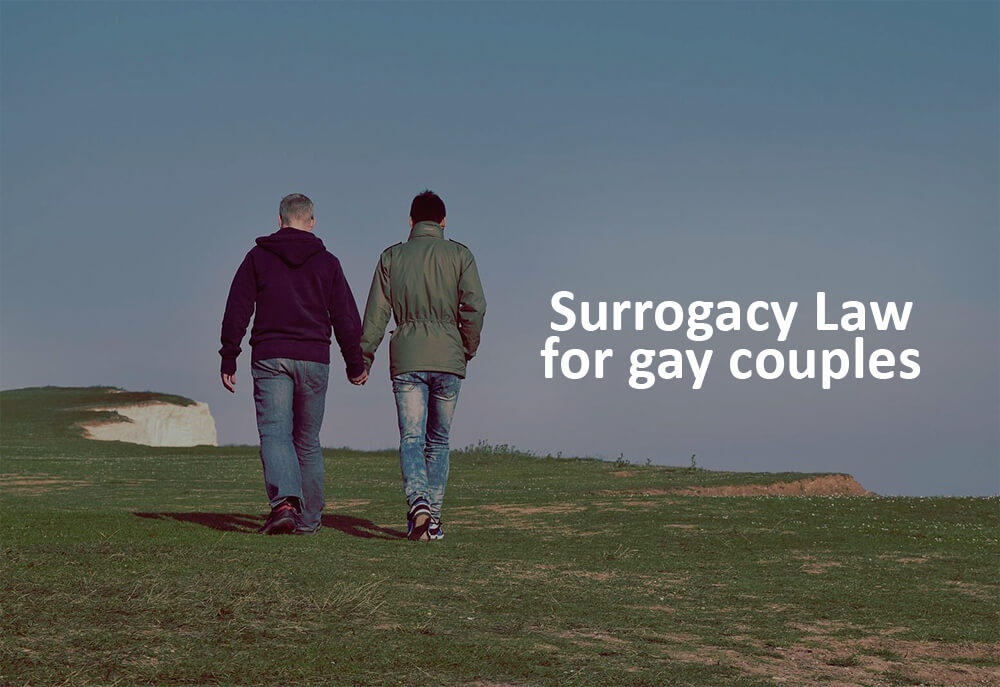Surrogacy laws in Ireland: Is surrogacy legal in Ireland?
There are numerous nations that adhere to the surrogacy procedure. Now a question may arise in your mind: Is surrogacy legal in Ireland? Or what are the surrogacy laws in Ireland?
Currently, there are no laws for surrogacy in Ireland to govern either domestic or international surrogacy. Many surrogacies involving Irish people are commercial arrangements undertaken outside the state.
The couple attempting to conceive using this method is considered the child’s parents, with all of the legal rights and responsibilities that entails. Surrogate mothers, or gestational mothers, are not granted parental or other legal rights to the child.


Ireland has become one of the most popular vacation spots in recent years, not just because of its tourist attractions and places to see, but also because of its excellent reputation in the medical community, particularly with regard to surrogacy. This is due to each intended parent receiving full legal support as well as the widespread use of surrogacy, which has a high success rate.
This article will give you all the details about surrogacy laws in Ireland.
We’ll talk about the following in this Article:
- Surrogacy in Ireland
- Surrogacy laws for a gay couple in Ireland
- Surrogacy laws for singles in Ireland
Surrogacy in Ireland
In Ireland, there are no laws pertaining to surrogacy at the moment. Neither permission nor prohibition is required. Irish law prohibits commercial surrogacy process, in which the surrogate mother is compensated, because of moral concerns about human trafficking.
Ireland does allow charitable surrogacy, though. In this situation, a close friend who wants to support the couple’s attempt at conception is acting as the surrogate mother. An unofficial agreement may provide compensation to the surrogate mother to cover some justifiable expenses.
Although there may be a genetic connection between the commissioning parents and the child, it’s important to understand that this does not necessarily mean that they are the child’s legal parents under Irish law. According to Irish law, there is a hurdle that needs to be cleared before the commissioning parents can be granted parental rights.
Even if she uses her own eggs and can demonstrate a genetic relationship to the child, it does not grant the commissioning woman any legal parental rights in Ireland. This assumption was amply supported in the case of MR v. An t-rd-Chláraitheoir [2014] 3 IR 533. The only way the intended mother can legally adopt the child is through adoption.
Irish law recognizes the surrogate mother’s partner as the legitimate father of the child. If the surrogate mother is not married and the commissioning father is genetically related to the child, he must file the following legal petitions with the Irish Courts to establish parental rights:
- Declaration of parentage—the court will require DNA proof to substantiate this.
- In Ireland, the surrogate mother is given guardianship by default, so she has been named as a joint guardian.
- Order from the court—the court has the power to ignore the surrogate mother’s consent upon request.
Surrogacy laws for a gay couple in Ireland
There is no law governing surrogate parenthood in Ireland, and any couple, heterosexual or homosexual, can avail themselves of the services of a surrogate mother or agency.
If you are a gay man or woman looking to have a child, surrogacy is an option. This means that some people consider surrogacy to be their only choice when it comes to having children. But surrogacy isn’t always legal in Ireland, and it’s important for those considering this process to understand the laws surrounding surrogacy in Ireland before they start the process. Surrogacy laws can vary depending on the situation.
If your partner wishes for him/herself (or him/herself) not to be involved during pregnancy and birth, then he/she should speak with an experienced lawyer about what options exist under Irish law regarding “consent.”

This requires both parties to consent prior to conception through a surrogate mother who agreed beforehand that she would act in this capacity in exchange for payment from either party. A gay couple without children may find it difficult to access surrogacy services because infertility clinics focus their services on heterosexual couples.
If you’re a gay couple without children and wish to have a child through surrogacy, it is important that the legal process of establishing your family unit is considered. Surrogacy contracts can be complex and difficult to negotiate—you will need a lawyer who understands this process and has experience with surrogacy cases.
There are a number of good reasons why surrogacy is an option for gay couples who have no children. If you do decide to proceed with this process, you should find a reputable surrogacy agency in Ireland who can help guide you through all of the legal aspects and ensure that everything goes smoothly.

Gaia Fertility is located in Southern Cyprus, offering support programs and services to cope with infertility issues. We ensure to deliver high success rates and compassion throughout every patient’s experience. Most importantly? The work comes from the bottom of our hearts.
Reach Out to Us
When you are ready to discuss your fertility plans, we will be here.
© Copyright 2020 – Gaia Fertility
 Hebrew
Hebrew Arabic
Arabic German
German
